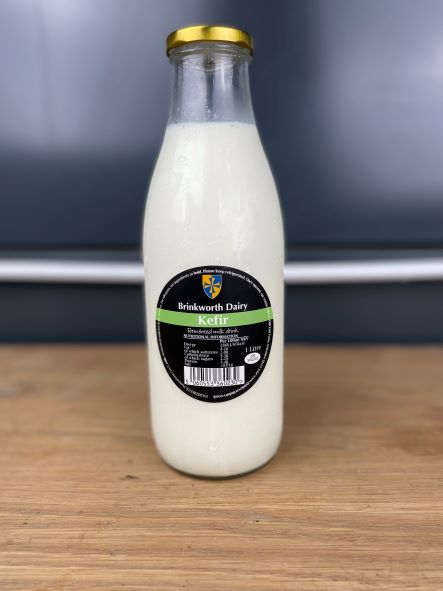One dairy product which is gradually gaining in popularity is Kefir. Interestingly, kefir was one of the first dairy products. Ten thousand years ago, the first animals that could be milked were domesticated, animals like cows, sheep and goats. Archaeology provides evidence of a history of cheese making from this time, as dairy fats can be found on ancient pottery shards. In China, there is evidence of kefir cheese being worn as a necklace. Maybe a necklace doesn’t have to be just an ornament. Could this be a popular meal or snack-to- go in our modern age?
Kefir is made from adding kefir grains to milk. The “grains”, bacteria and yeast, used in the fermentation process, are natural and cannot be produced artificially. This means that the grains used to produce kefir today are direct descendants of those first discovered thousands of years ago in the Russian Caucasus, Tibet and Mongolia. When kefir grains are added to milk, the bacteria and yeast use the milk as food to multiply, thus starting the process of fermentation.
Kefir has been slowly increasing in popularity in modern times. There are a wide range of health benefits associated with drinking kefir such as improved cholesterol, lower blood sugar content, better digestion and gut health; it also has a reputation for helping with weight loss, although three portions of milk or yoghurt daily has a similar effect in trials. Some probiotics are only present in kefir. Probiotics are live microorganisms intended to give health benefits when consumed or applied to the body.
Kefir is also low in lactose, which can be very helpful for those who believe they are lactose intolerant. Drinking kefir will mean that they don’t have to miss out on the health benefits of milk. Like milk, kefir contains A,D,K and B vitamins and minerals like calcium with bioavailable protein.
It’s thought that kefir also reduces inflammation in the body, and so may help in the treatment of long-term conditions like arthritis, heart disease, stroke and type 2 diabetes. Kefir is known for increasing the beneficial bacteria in your gut, with a greater range of bacteria that carry out useful functions in the body.
As well as keeping a healthy gut balance, kefir is full of beneficial vitamins and minerals. It also tastes good. What’s not to like?
